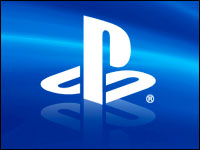
Sony’s next-generation gaming console will arrive next year, according to The Wall Street Journal. Users of the upcoming system will be able to play games by inserting discs, just like they do with the present-day PlayStation 3. However, Sony executives reportedly came very close to limiting the console to downloadable games only.
Currently, PS3 users can either buy a physical copy of a game or download games and other digital entertainment content from Sony’s online store without using a disk or cartridge. Because of concerns about the varying quality of Internet service worldwide, however, Sony decided to keep the disk format option in its upcoming console.
A switch away from disks would also presumably have an effect on retail store sales of disc games. However, some retailers such as GameStop have already started to offer online-only products such as codes users can buy and then plug into their computers or consoles to download a game. Apple and Google have also had some online success selling games and gaming apps via their online stores.
Microsoft conducted similar discussions about a download-only limitation for its future Xbox console. That company also reportedly decided to stick with a disk-based console because of connectivity concerns.
More video game announcements are expected at the E3 video game exposition in Los Angeles next week; however, Sony and Microsoft aren’t expected to officially launch a new Playstation or Xbox console at this year’s annual conference.
Sony didn’t respond to our requests for comment.
Not Quite Ready to Dump Disks
Piracy has been a serious concern for the video game industry for years, and many companies have instituted a variety of countermeasures to combat the trend. Limiting games to downloadable content could make it more difficult for pirates to swap games illegally. However, Jia Wu, senior analyst at Strategy Analytics, told TechNewsWorld said that while piracy is a problem, the main drive to move online is for customer convenience and the ease with which games can be purchased online, leading to more profit for Sony.
Even though Sony and Microsoft made decisions to stick to disks, at least for their next offerings, Wu said that gaming companies are well aware that any new console must be able to keep up with the demand for online capabilities.
“The trend is online,” he said. “It’s more convenient for consumers to buy content. They save time and they can easily make purchases, so it really increases the sales opportunity of gaming content, as well as other content such as music and the add-on packages after you download the game.”
Console makers face growing competition from other systems, Ted Pollak, senior gaming analyst at Jon Peddie Research, told TechNewsWorld. With a wide array of connected home device offerings, consumers might not be willing to splurge on a separate gaming console when they have a PC that connects to a smart TV, for instance.
“Console technology is really old,” he said. “There are so many choices with media experiences and usability such as smart televisions, Blu-ray players and other connected living room experiences, that outside of gaming, use gets really limited with a console.”
For all the perks to online connectivity, though, users abroad might not demand a switch away from the traditional disk, he said.
“The market is there for a new form, but obviously not in the whole world,” he said.
Adapting Retailers
The gaming world may one day be ready for download-only limitation in gaming consoles, acknowledged Wu, but until then, Sony most likely feels it’s better safe than sorry when keeping the disk format.
“The disk is still important,” he said. “It guarantees that there is a stable game experience. Eventually Internet speeds and stability will improve, but we’re not sure to what extent and how quickly, so this is a way to stay safe.”
In the meantime, he said, traditional brick-and-mortar retailers are trying to adapt to the changing marketplace before a completely online format could force them out of business. Sony, Microsoft and other companies with game offerings will also need to figure out how to launch products without that retail connection, said Wu.
“Microsoft and Sony really value that connection with the retail store,” he said. “They serve as a channel to display games, for instance. When there’s a big game launch, people tend to wait outside, and its a phenomenon. Stores like GameStop are adapting because you can now buy games online, so they’re still a distribution channel, but they’re going to have to figure out a way to be valuable going forward, such as perhaps launching an online game platform.”





















































